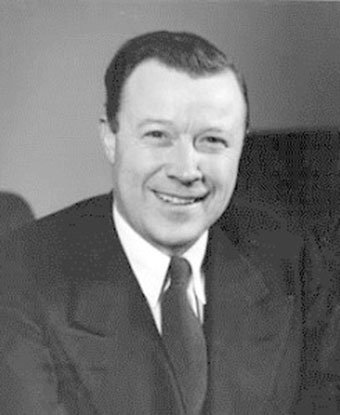Last updated: September 14, 2017
Person
Walter Reuther

Reuther Library, Wayne State University
Quick Facts
Significance:
labor organizer, president of United Automible Workers, took part in 1963 March on Washington
Place of Birth:
Wheeling, WV
Date of Birth:
September 1, 1907
Place of Death:
plane crash; Pellston, Michigan
Date of Death:
May 9, 1970
Place of Burial:
Ashes scattered over Black Lake Michigan
An influential figure in American labor relations, Walter Reuther (1907-1970) was the president of the United Automotive Workers (UAW) from 1946 until his death in 1970. His tenure represents the automotive unions at their strongest.
Reuther worked his way from a tool and die shop in Wheeling, WV, to the corporate board rooms of the "Big Three" automakers in Detroit, Michigan, but the plight of the less fortunate, those struggling for the next rung on the ladder, were his primary focus. His connection with disadvantaged groups in society informed his political and personal choices. As a young man, he aligned with the Socialist Movement, before abandoning it for liberal Democrats such as Franklin D. Roosevelt. He led union workers to middle class prosperity through shrewd negotiation tactics and by putting their needs first. Reuther's more liberal convictions convinced him to break away from the AFL-CIO (a re-merger he had negotiated). Those convictions also led to his involvement with the modern civil rights movement.
Reuther engaged in civil right activities in the South and across the nation. He was one of the "Big Ten" organizers of the 1963 March on Washington for Jobs and Freedom, backing the historic event with his presence as well as his organization's financial resources. He marched across the Edmund Pettis Bridge from Selma to Montgomery, Alabama with John Lewis, Martin Luther King, Jr., and Bayard Rustin on Bloody Sunday. For Reuther, social activism and union organization were the means to social justice and human progress. Reuther supported organizations such as Cesar Chavez' United Farmworkers Union as it made its way to prominence. He died tragically in a plane accident (along with his wife May and two others) on May 9, 1970 and was awarded the Presidential Medal of Freedom posthumously by President Bill Clinton.
